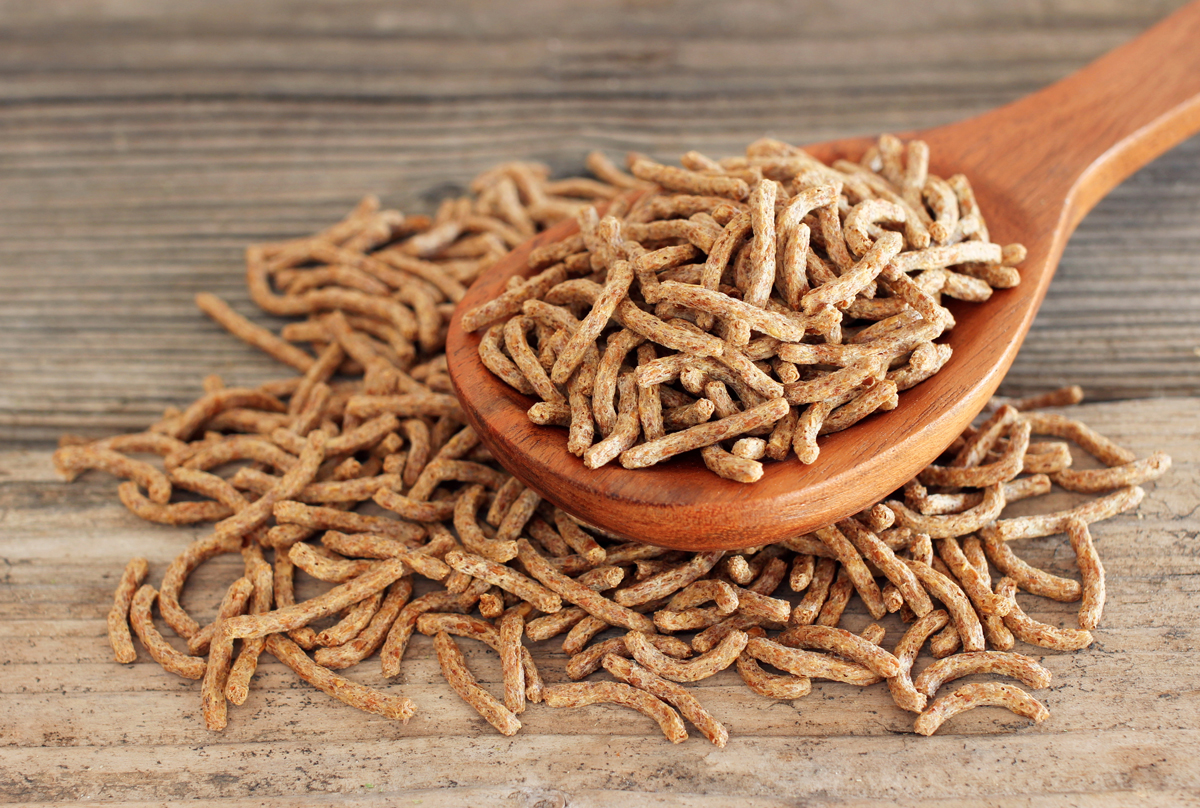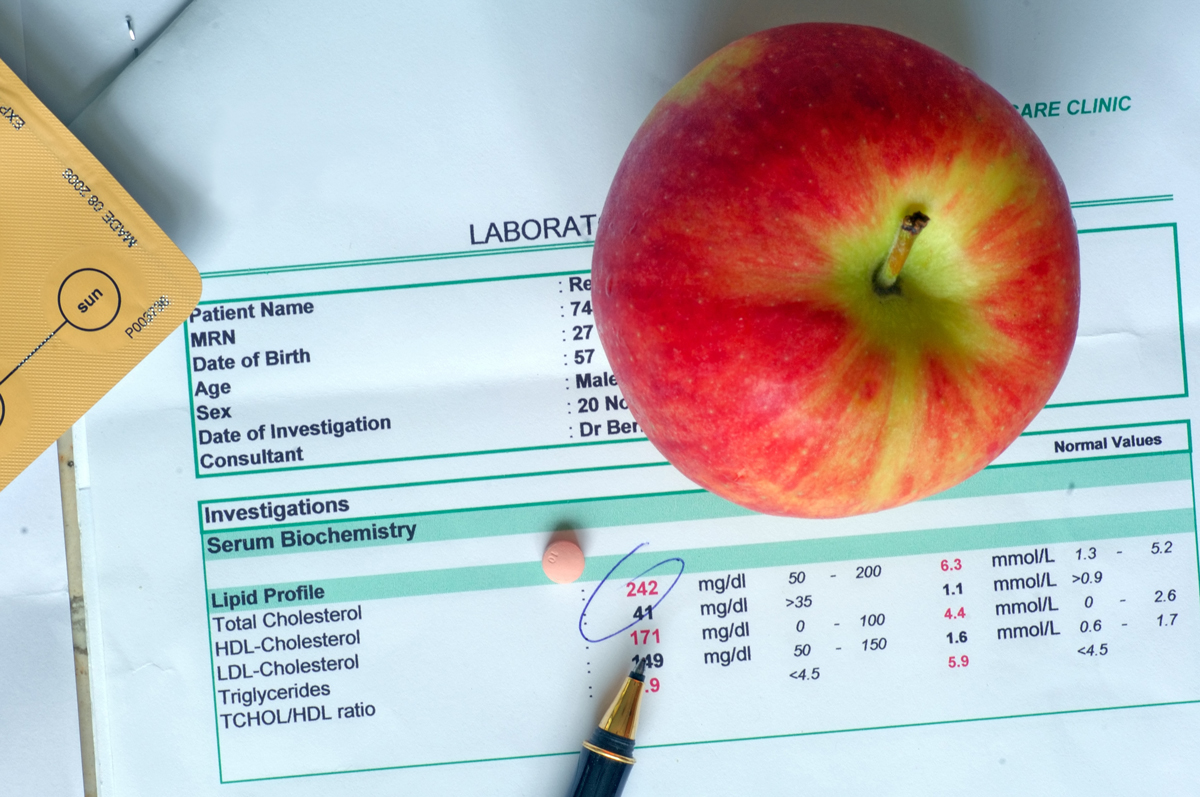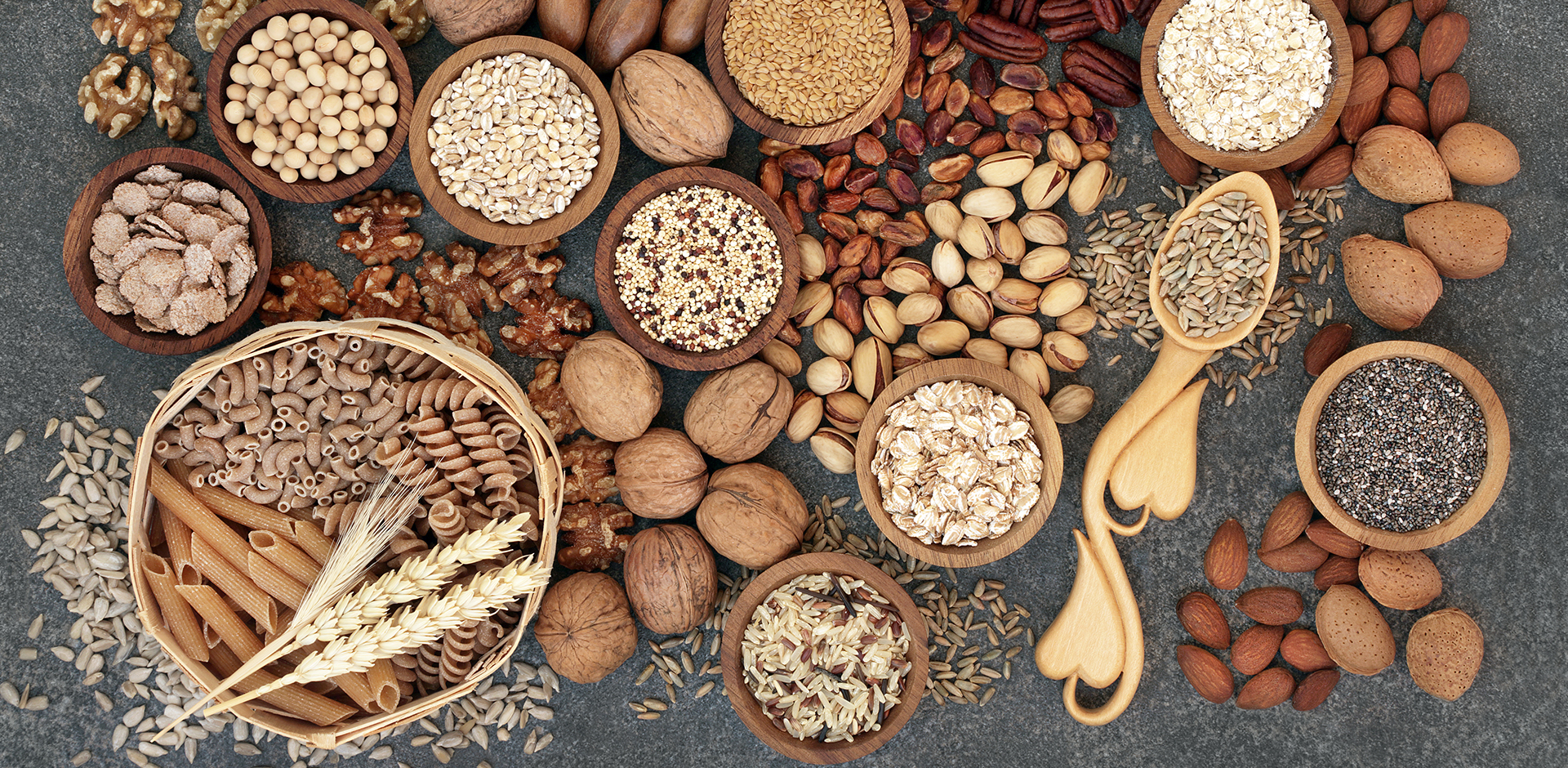Scientific research clearly demonstrates the health-promoting effect of dietary fiber on the body. What exactly is fiber and where can we find it? What are the differences between soluble and insoluble fiber? What role does it play in our diet and what is it responsible for? Answers to the above questions are presented in the following article.
Fiber - what is it actually?
Dietary fiber, also known as digestive fiber, is the remains of plant cells that are not digestible in our digestive tract; however, they are partially hydrolyzed by colon bacteria. This component belongs to complex carbohydrates and its components are: cellulose, lignin, hemicelluloses, gums, pectins and sluices.

How much fiber should we provide with diet?
Every person whose goal is to ensure the proper functioning of the digestive tract, as well as prophylactic prevention of civilization diseases should ensure adequate supply of fiber. According to the World Health Organization (WHO), the recommended amount is about 20-40 g / day, you should supply about 10-12 g fiber for every 1000 kcal in your diet. It is worth knowing, however, that both eating too little and overdose of the fiber can be harmful and cause problems, for example, intestinal. The supply of this ingredient should be considered by people who previously did not provide it in the recommended amount. Special care should be taken by people suffering from irritable bowel syndrome as well as inflammatory bowel diseases. A very important issue is that for fiber to work positively, you need to take care of the right amount of water, about 2-3 liters a day. Despite the many benefits, this component in excess can hinder the absorption of certain minerals and vitamins, and if we forget to supply enough fluids, it may paradoxically cause constipation.
What is the role of fiber?
Dietary fiber is of great importance in our diet:
• Increases the volume of the bolus in the small intestine, which is associated with the ability to bind water and increased secretion of digestive juices.
• It binds some toxic compounds to the body, e.g. heavy metals. As a consequence, it prevents them from being absorbed in the digestive tract.
• Creates a favorable environment for the development of the physiological intestinal bacterial flora.
• It reduces the use of energy from food, thus supporting the treatment of obesity.
• It affects the metabolism of bile acids - it protects the body against the formation of gallstones.
• Reduces the risk of appendicitis, hemorrhoids, varicose veins, hernia and many other diseases.
• Gases produced in the breakdown of fiber and short-chain fatty acids act as osmotically-active agents and facilitate excretion of faecal mass.
• It binds excess hydrochloric acid in the stomach and stimulates the intestinal blood supply.

Especially for the appropriate supply of fiber in the diet should pay attention to people who:
- note the problem of irregular bowel movements or constipations,
- they fight with extra kilos,
- have observed abnormal blood glucose and / or cholesterol levels in the studies.
Sources of fiber
The largest amounts of dietary fiber contain cereal products, groats, as well as vegetables and fruits. Providing every fraction of fiber in the diet is extremely important. There are:
• Soluble fiber (pectin, beta-glucans, fructans, oligosaccharides) - it is found in legumes (beans, lentils), fruits such as apples, berries, citrus fruits, as well as in oat bran and barley products. This fraction is subject to bacterial fermentation in the gastrointestinal tract and positively affects the metabolism of carbohydrates and fats. It is characterized by the possibility of forming a gel and binding some nutrients in its structures.
• Insoluble fiber (hemicellulose, cellulose, lignin) - found in products such as flaxseed, whole grain wheat products, vegetables such as celery, cabbage, beets, carrots, cauliflower. This fraction affects the intestines, mainly the large intestine, as it accelerates the intestinal passage, increases the faecal mass, and absorbs and binds some substances, also toxic from the gastrointestinal tract.
Both fractions are extremely important for maintaining health, proper digestion and prevention against diet-related diseases such as obesity, diabetes or constipation. Soluble and insoluble fiber very often occur in one plant product, also if your diet is balanced, you do not have to worry about the shortage of any of the factions. The menu should be rich in vegetables and fruits as well as whole-grain cereal products, especially rice, buckwheat, oatmeal, as well as starchy vegetables such as potatoes, sweet potatoes, pods and nuts and seeds e.g. almonds, walnuts, hazelnuts, Brazil nuts.
Benefits of consuming the right amount of fiber
Fiber works in the digestive system like a whisk. It improves intestinal peristalsis and helps with constipation. Thanks to its appropriate amount, the intestines are working properly, which facilitates the metabolism processes. Fiber has a protective effect against various disease entities - it prevents constipation and also has a prophylactic effect against serious diseases of the large intestine. It has also been shown that this component lowers blood cholesterol levels and delays the absorption of triglycerides. It is related to its susceptibility to fermentation processes under the influence of intestinal micro flora, which determines the inhibition of hepatic cholesterol synthesis. Binding of bile acids, which carry cholesterol, inhibits their reversible transport to the liver, thus lowering the level of cholesterol in the blood serum. Dietary fiber also has a positive effect on the level of glycaemia. By increasing the viscosity of the bolus, it slows down the passage of the small intestine and slows down the glycemic response as a result of slowing down the emptying of the stomach and small intestine.
How to provide the right amount of fiber in the diet?
• eat a portion (a handful) of nuts daily,
• choose wholemeal and wholegrains bread instead of white one,
• include legumes (beans, beans, lentils, chickpeas, peas, soybeans) and various types of groats in the diet,
• add bran for yogurt and salads,
• make sure that various vegetables appear in your diet,
• eat 1-2 portions of fruit every day (preferably with a peel),
• give up processed, ready-made foods and junk food.

Summary
Providing an adequate amount of dietary fiber in our diet is necessary for maintaining the health of the body. This ingredient increases the content of nutrients; improves and rationalize the functioning of the intestines, has a positive effect on the intestinal micro flora and reduces the risk of many diseases. However, it should be borne in mind that both insufficient and excessive intake of dietary fiber may be a source of problems, so make sure you balance your diet accordingly.





